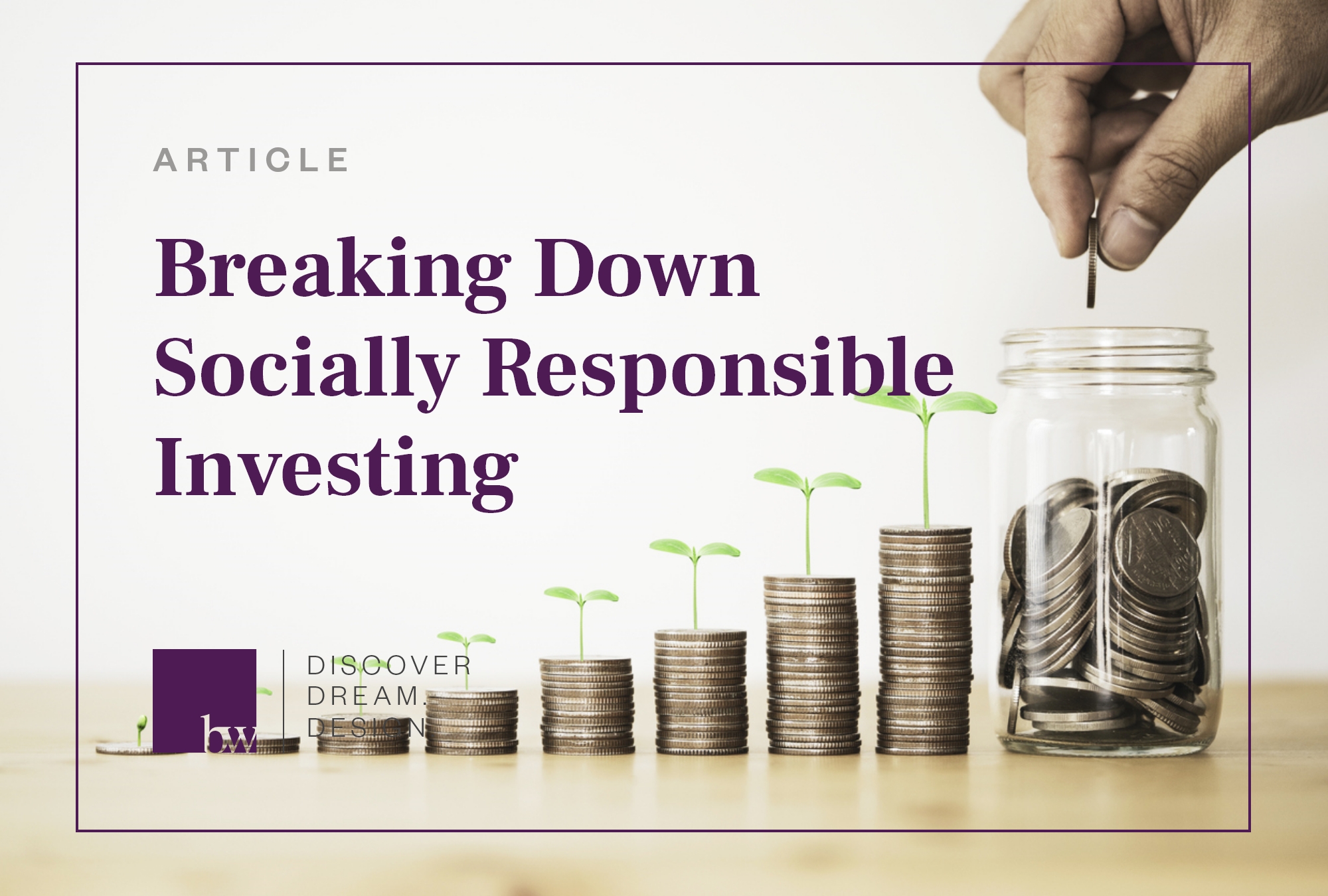
Are You Ready to File Your 2021 Federal Tax Return?
Posted on April 07, 2022
Planning and Guidance, Tailored To Your Life and Goals
News
Posted on May 20, 2021

Many investors want more out of their investments than just a good return. They want to know the companies they invest in are ethical and responsible — that they build environmentally sustainable business models, advance a social good, and operate in a transparent, ethical way. To identify these companies, socially responsible investors can use a set of criteria known as ESG.
ESG is short for environmental, social and governance. Investors can use each element of this framework to screen their investments and build a socially responsible portfolio. Here’s a closer look:
The ESG framework gained popularity in the 2000s with the rise of socially responsible investing. It was largely fueled by two reinforcing factors:
Consider that 57 of Morningstar’s 65 ESG-screened market indices have outperformed their ESG-indifferent counterparts over the past five years.
What gives companies that meet ESG criteria a competitive edge? It may be that businesses relying on sustainable sources of energy and materials are naturally more fit for long-term survival. Those that treat their workforce well may improve employee productivity, decrease turnover, and avoid bad press and lawsuits. And companies with good governance practices may ensure competent leadership, avoid scandal, and increase shareholder returns by reducing executive salaries and bonuses.
You may not feel you have the time or expertise to independently evaluate the ESG performance of every stock you might want in your investment portfolio. Many ESG investors rely on ESG-focused index funds, mutual funds, and exchange-traded funds to build a balanced, diversified, socially responsible portfolio.
An ESG fund may still hold stock in companies you don’t agree with for moral or ethical reasons, such as distilleries, weapons manufacturers, or casinos. These companies may perform well on an ESG evaluation, so if you have qualms with certain industries, be sure to seek out an ESG fund that specifically excludes them.
There is no universal ESG standard, so it’s important to read the prospectus of the fund you’re considering to better understand what criteria a fund is using. Commonly found on a fund’s website, the prospectus gives detailed information about how the fund operates, detailing its objectives, risks, fees and expenses. The Securities and Exchange Commission also maintains a searchable database of fund prospectuses. You may also consult a financial advisor to help you determine which ESG funds meet your objectives and are appropriate for your portfolio.
Sources:
https://www.sec.gov/edgar/searchedgar/prospectus.htm
Environmental Finance. (2004). United Kingdom: Fulton Pub. Limited.
https://www.ussif.org/article_content.asp?edition=1§ion=3&article=19